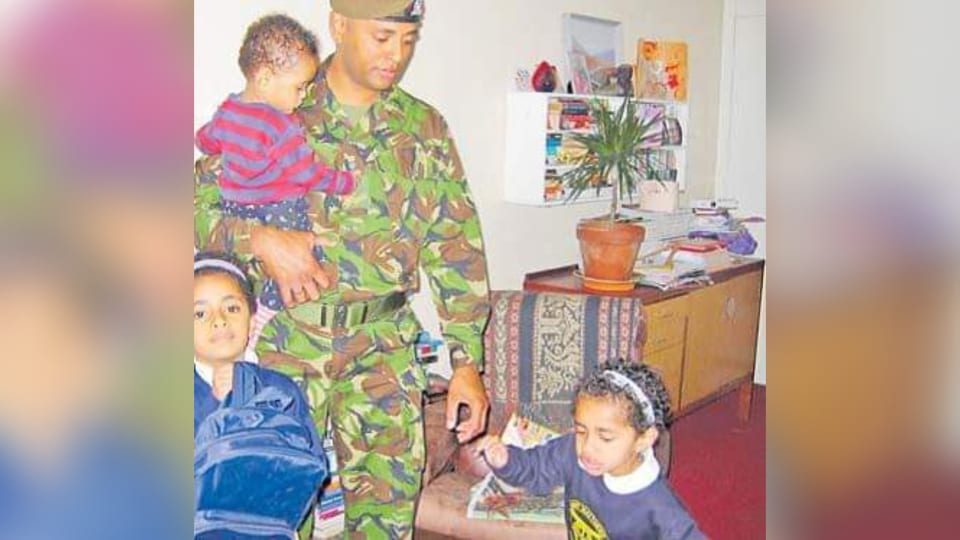In my last column, I spoke to the best of my knowledge about a piece of Fijian tradition that had been gifted to me to — a salusalu. It was given to me in celebration of an achievement.
This week’s column takes on a sombre theme, that of remembrance and death.
On November 11, the Commonwealth of nations marked Remembrance Day, a day introduced after World War I by King George V in 1919.
Here in Oxford, all the entrances to colleges and shops have opportunities for you to buy a small, red poppy to place on your clothing.
It is a small gesture, but the symbol of the red poppy is one of strength and valour.
My dad served in the British Army, and it is the only job I remembered him having until he left in 2013.
I grew up in Wellington Barracks, opposite Buckingham Palace and it took me a long time to realise that not everyone’s dad was in the army, and not everyone’s dad could fly oversees and maybe not ever come back.
I have very faint memories of the Iraq War in the early 2000s.
I remember my dad made me and my older sister watch a video before he went off on tour, and my older sister Kulamailagi burst into tears after he had left. I am not sure if young Kesaia really understood the severity of her dad’s work.
Parents have jobs, they go to them every morning. They always come back. But when they return, are they changed forever?
I do not know what it is like to go to war and to fight for King and country.
I can only speak as someone who grew up in a barrack, surrounded by boys, girls, men and women in uniform. Many of whom would be called up to fight in the Middle East.
I am incredibly lucky because my dad did come back, different, but returned.
Fiji provides one of the highest numbers of recruits to the British Armed Forces every year, especially since the requirements were changed in 2018, making it easier for Commonwealth citizens to join.
This is particularly impressive when you look at the humble size of our nation, compared to that of other Commonwealth states.
The mark this, our islands have made on the world, for the preservation of peace is something we should all be proud of. I know I am.
When I walk around and see the red poppy this month, I will think of my dad, aunts and uncles, cousins, all of whom answered the call to fight for peace.
But I will especially think of those who went and did not return. It is symbol of the price so many have paid for peace.
There was a period of time in my youth, when it felt like there was a reguregu (funeral) in some part of England every other week.
I learnt what it meant to grieve, and to not grieve alone. The act of families, villages, coming together to hurt and cry together is something I struggle to put into words.
There was the war that raged in Afghanistan so far away, and here in places like Aldershot or Woolwich or London we were forced to deal with the fallout.
In 2010 one of my uncles was killed. He was not the first or last, but there was something about it just that didn’t feel real.
He had always been a familiar face at Fijian gatherings, at other reguregu. It felt like, I had only just seen him, sitting cross-legged on a mat in a military house, at a meeting attended by my dad, my mum, and my grandfather.
He was always smiling, and kind, and one of those uncles I was always happy to see.
I thought he would be there forever. The shock and grief I experienced was nothing compared to those even closer to him, and I will not dwell on how it made me feel too much as it does not feel like mine to really say.
I think of him this month, of his family, and the many families who lost their loved ones.
The poppy is also the symbol of the Royal British Legion, a charity set up to support serving and retired armed personnel. My dad called me to tell me he had attended a Remembrance Day function at its headquarters.
The warmth in his face, when he told me of what it was like to see all his old friends, whom he had served with, filled me with happiness too.
That’s an experience they will always share, that no one can take away from them.
This column is dedicated to all the Fijian men and women who have fought for the preservation of peace in the world!
• KESAIA TOGANIVALU is an aspiring journalist and final year student at the University of Oxford’s Magdalene College, where she studies English literature and language. The views expressed by the author are hers and do not necessarily reflect the views of this newspaper.




